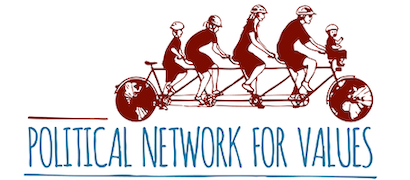The new abortion guidelines published this month by the World Health Organization (WHO) represent a huge concern for the Political Network for Values (PNfV) members. The United Nations (UN) agency recommends total decriminalization of abortion, catalogues it as essential health care, asks for it to be facilitated by telemedicine, and to be “self-managed” before the 12th week of pregnancy as well. In addition, it also requests limitation of the conscientious objection of health professionals.
The new Abortion Care Guideline seeks to establish patterns to grant full access in health systems to what they call “quality of abortion care” and links this practice to the Sustainable Development Goals (SDGs), considering abortion as a priority and “fundamental to achieve the goals related to good health and well-being (SDG 3) and to gender equality (SDG 5)”. How to support these two goals proposed by the UN if they are, according to its official health agency, intrinsically related to abortion on demand for woman and children?
Since 2003 the WHO proposes guidelines that openly support abortion decriminalization, but never as overwhelmingly as now, under the excuse of stopping the deaths stemmed from “unsafe abortions”, whose estimates come from questionable studies.
We gladly embrace the efforts made by the WHO to create a safer environment for children and women. However, we furthermore lament that enormous efforts and resources are wasted to promote abortion, intentionally ignoring not only the physical risk associated with the practice and its serious psychological consequences for the mother, but the fact that every abortion concludes with the death of a baby. Where is the same effort to fight against the main causes of death of women in the world, among which the so-called unsafe abortion is not included and cardiovascular diseases, diabetes, and cancer are?
We believe the guidelines published by the WHO reach beyond the agency’s mandate, violate the fundamental rights recognized by the Universal Declaration of Human Rights, especially the right to life and to freedom of conscience, and violate the founding agreement of the UN and the sovereignty of its member states.
It must be remembered that a great number of countries, members of the UN, signed the Geneva Consensus, a declaration in which women’s health is promoted, as well as the protection of life at all stages and the integrity of family. The signing countries represent more than 1.3 billion people who defend the sovereignty of the states to legislate abortion without external interference and agree that “there is no right to abortion, nor any international obligation on the part of states to finance or facilitate this practice.” The adherence to this consensus is growing consistently: in October 2020, the date when the consensus was launched, 6 states signed it, today it is signed by 36. To issue the mentioned guidelines and ignore this reality is a questionable act.
Promoting abortion decriminalization and facilitation through an international agency is a form of ideological colonization. Abortion is a social and cultural problem from which an entire industry profits, exploiting suffering and vulnerability; it is the responsibility of the diverse political, social, and health care actors to face it without reductionism, attending to the full complexity of the problem and offering life alternatives. The moment it is natural for a society to “discard” their babies, through a pill or another medical intervention, that society loses part of its humanity, embraces barbarism, and renounces its future.
As members of the PNfV we reaffirm our belief that every life is precious, and we ratify our determination to ensure this new WHO guidelines won’t be applied in our countries.
Madrid. March 28th, 2002.



